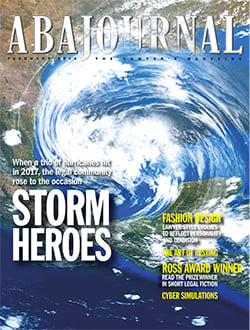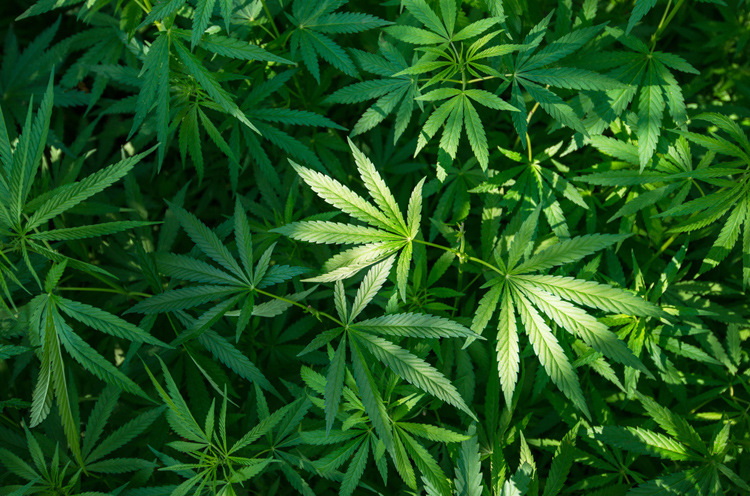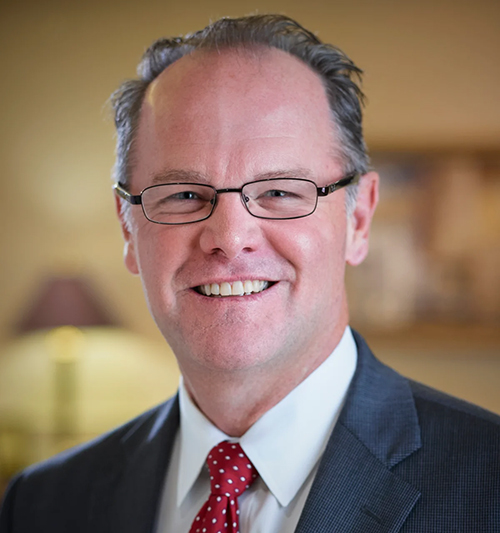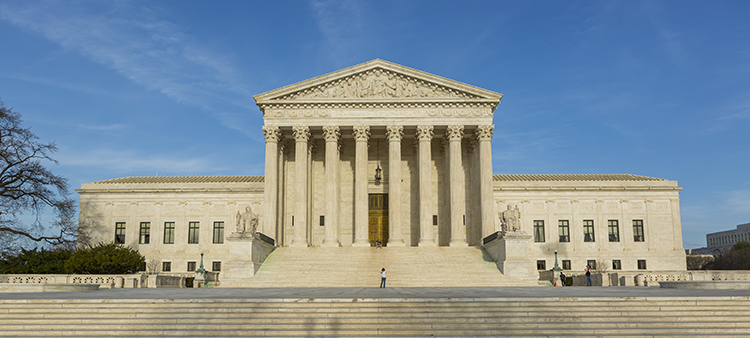Lessons from Katrina
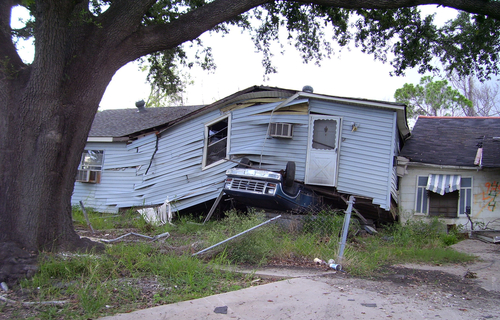
Damage from Hurricane Katrina. Shutterstock.
Twelve years ago, Kathleen Bergin was a professor at the South Texas College of Law when Hurricane Katrina struck. As New Orleans’ nearest big-city neighbor, Houston welcomed thousands of refugees. Bergin and a colleague went down to one of the shelters to see whether they could help. They ended up passing out food.
“What happened after Katrina in those first couple of weeks was really just finding our way,” says Bergin, now a disaster legal services consultant who did extensive work after the 2010 earthquake in Haiti.
But 12 years have made a difference, says Randy Sorrels, a Houston personal injury lawyer who was president of the Houston Bar Association at the time of Hurricane Katrina.
“We acted very expediently [in 2005] but not near as quickly as they reacted this time because there was a blueprint in place,” says Sorrels, a partner at Abraham, Watkins, Nichols, Sorrels, Agosto & Aziz. “Within probably hours of the shelters being set up, there were lawyers in those shelters.”
That’s one lesson legal first responders say they learned from Hurricane Katrina: Have a plan in place to get help out right away. Jonathan Rhodes, executive director of the Louisiana Civil Justice Center, says the ABA’s Disaster Legal Services—a post-Katrina project of the Young Lawyers Division—has been a big part of organizing that.
“I think there’s been a very well-established protocol for disaster legal services between the ABA, FEMA and then the local bar associations and legal service providers,” says Rhodes, whose legal aid organization was itself a response to Katrina.
Disaster Response Resources
ABA Resources
• ABA Committee on Disaster Response and Preparedness
Volunteering Opportunities
Florida attorneys can visit the Florida Bar Foundation to find post-storm volunteer opportunities for legal aid and pro bono attorneys, or visit Florida Pro Bono Matters.
North Carolina attorneys can find info on volunteering on the North Carolina Bar's Hurricane Florence page.
South Carolina attorneys can volunteer for the South Carolina Bar's disaster relief legal service hotline by filling out this form.
Not licensed in those states but looking to donate your time or money? Check out ambar.org/DisasterRelief.
ABA Journal Coverage
Hurricane Heroes: From the February 2018 issue
Legal community meets relief challenges after hurricanes Harvey and Irma
ABA mobilizes aid to Puerto Rico and the Virgin Islands
Lessons from Katrina
Social media unites lawyers to help those in need
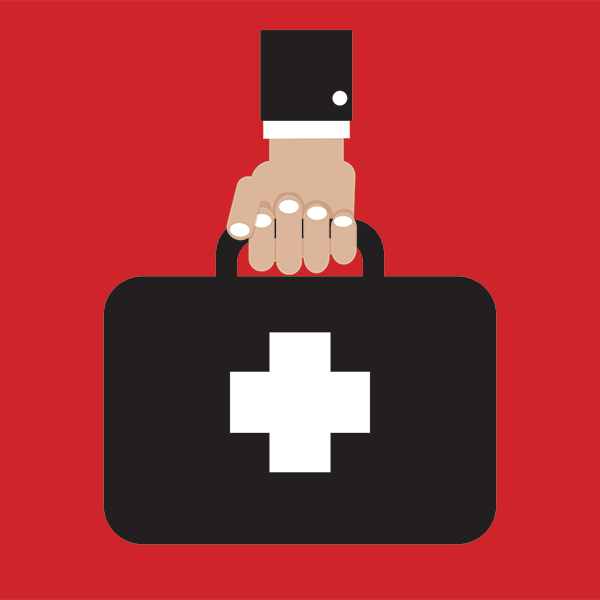
For our latest natural disaster coverage, click here.
Disaster Helplines
The Disaster Distress Helpline (DDH) is a national hotline dedicated to providing year-round disaster crisis counseling. This toll-free, multilingual, crisis support service is available 24/7 via telephone (1-800-985-5990) and SMS (text 'TalkWithUs' to 66746) to residents in the U.S. and its territories who are experiencing emotional distress related to natural or man-made disasters.
For low-income individuals with disaster-related legal needs, the following phone numbers are available:
North Carolina residents: 1-833-242-3549
South Carolina residents: 1-877-797-2227 ext. 120
Virginia residents:
1-804-775-0808 in the Richmond area, or 1-800-552-7977.
Florida residents: 1-866-550-2929.
Private attorneys learned some things, too. Sorrels, whose downtown Houston office has flooded three times in the past three years, says his firm has started backing up everything electronically; the filing cabinets even have wheels. Charles Jimerson, whose Jacksonville, Florida, law firm had to move out of its office when the building’s basement flooded, says his firm’s disaster plan relies heavily on remote working and a secure server for client files.
“We fancy ourselves as legal firefighters, and when you’re a legal firefighter you don’t get the luxury of the fire coming to you,” says Jimerson of the 10-lawyer business litigation firm Jimerson & Cobb. “So our lawyers are able to pick up and work remotely in any location.”
Another lesson from Katrina, Rhodes says, is that recovery will take years—and there’s still a role for lawyers to play, especially in Puerto Rico.
“We learned from Katrina that lawyers should be involved in … bigger-picture rebuilding efforts,” he says. “All these really deep issues that affect policy are also places that lawyers and the legal community can get involved to do what we do best, which is try to promote justice.”
A LAWYERS NETWORK
Florida’s court system had its first big body slam with Hurricane Andrew in 1992. The storm left state courts in southeastern Florida closed for weeks as the state struggled to restore order.
A man-made disaster struck next with the anthrax scare that followed the Sept. 11 terrorist attacks, which repeatedly forced the closing of courts throughout the state and prompted the chief justice at the time to establish a commission to make recommendations for future disasters.
“It was this commission’s recommendation that court communications were absolutely crucial for recovery,” says Craig Waters, the Florida Supreme Court’s public information officer for 30 years. “One of the bullet points in its package of recommendations was creation of the group of professional court communicators called the Florida Court Public Information Officers.“
The FCPIO organized soon afterward and had been meeting regularly for 12 years before Hurricane Irma hit. “Based on our statewide communications plan, FCPIO has strongly emphasized the importance of using social media—a point that proved crucial when Irma hit,” Waters says. “Twitter in particular became our most important link in communicating with the public as Irma was ravaging the entire peninsula of Florida. It now is clear that social media will be an essential tool for court communications in general and crisis communications in particular.”

